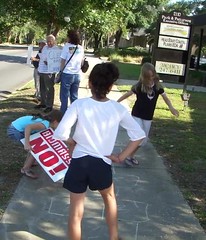Tony O’Neill wrote 14 June 2011 in The Fix, Why Growing Numbers of Police Are Slamming Drug Prohibition:
The War on Drugs has failed. Like alcohol prohibition before it, it breeds more violence. Law enforcement against it just makes it worse: Continue readingFor decades, police were convinced that total prohibition was the only way to end America’s deadly drug wars. Now thousands of cops are not only having second thoughts but actually taking to the streets in protest.
“I was pro-prohibition: that’s what my training was about!” says Major Neill Franklin, Executive Director of Law Enforcement Against Prohibition (LEAP), who previously served for 33 years with the Maryland State Police and the Baltimore police forces on the front line of America’s longest running war. “Even though I grew up in Baltimore and saw what was going on, we were taught and trained to believe that if we push hard enough, if we lock up the people involved, then this will eventually dissipate, or at least be reduced to a manageable level.” He gives a long, world-weary sigh. “Of course back then I had no clue…You just can’t tell somebody not to use and they’re gonna stop using! As long as there are people willing to buy, and as long as people don’t have employment, then you’re going to have an illicit drug trade. I saw that we made these arrests—we locked up dealers and users alike—and it might get quiet for a few days, or even a couple of weeks, but give it time and it all starts up again.”











